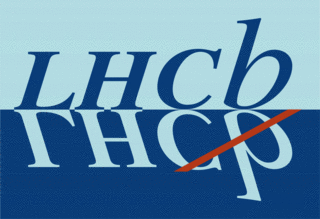Simulated dataset MinBias_TuneZ2star_8TeV-pythia6 in AODSIM format for 2012 collision data
/MinBias_TuneZ2star_8TeV-pythia6/Summer12_DR53X-PU_S10_START53_V7A-v1/AODSIM, CMS Collaboration
Cite as: CMS Collaboration (2021). Simulated dataset MinBias_TuneZ2star_8TeV-pythia6 in AODSIM format for 2012 collision data. CERN Open Data Portal. DOI:10.7483/OPENDATA.3GIM.7SPW
Dataset Simulated Standard Model Physics Minimum Bias CMS 8TeV pp CERN-LHC
Description
Simulated dataset MinBias_TuneZ2star_8TeV-pythia6 in AODSIM format for 2012 collision data.
See the description of the simulated dataset names in: About CMS simulated dataset names.
These simulated datasets correspond to the collision data collected by the CMS experiment in 2012.
Dataset characteristics
49843635 events. 3615 files. 13.0 TiB in total.System details
START53_V27::AllCMSSW_5_3_32
Recommended container image for analyses is available in the following locations (see guide):
docker.io/cmsopendata/cmssw_5_3_32-slc6_amd64_gcc472:latestgitlab-registry.cern.ch/cms-cloud/cmssw-docker-opendata/cmssw_5_3_32-slc6_amd64_gcc472:latest
How were these data generated?
These data were generated in several steps (see also CMS Monte Carlo production overview):
Step SIM
Release: CMSSW_5_0_0_patch2
Global Tag: START50_V13::All
Generators: pythia6
Configuration file
for SIM
(link)
Output dataset: /MinBias_TuneZ2star_8TeV-pythia6/Summer12-START50_V13-v3/GEN-SIM
Step HLT RECO
Release: CMSSW_5_3_2_patch4
Global Tag: START53_V7A::All
Configuration file
for HLT
(link)
Configuration file
for RECO
(link)
Output dataset: /MinBias_TuneZ2star_8TeV-pythia6/Summer12_DR53X-PU_S10_START53_V7A-v1/AODSIM
To make these simulated data comparable with the collision data, pile-up events are added to the simulated event in this step.
The pile-up dataset is:
/MinBias_TuneZ2star_8TeV-pythia6/Summer12-START50_V13-v3/GEN-SIM
How were these data validated?
The generation and simulation of Monte Carlo data has been validated through general CMS validation procedures.
How can you use these data?
You can access these data through the CMS Open Data container or the CMS Virtual Machine. See the instructions for setting up one of the two alternative environments and getting started in
Running CMS analysis code using Docker
Disclaimer
The open data are released under the Creative Commons CC0 waiver. Neither the experiment(s) ( CMS ) nor CERN endorse any works, scientific or otherwise, produced using these data. All releases will have a unique DOI that you are requested to cite in any applications or publications.






